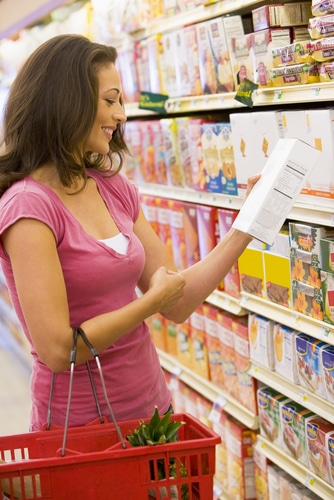
Food Safety: Fake Foods are Bad News for Shoppers
USP is an independent, non-profit lab that publishes the “food fraud database” to make people more aware of misrepresentation in the food industry. In their latest update, they point out that “food fraud” is up 60% this year. What does this mean? It means what you’re getting when you purchase a food or beverage may not be what’s on the label.
Everyone should be concerned about food fakery, but it’s especially problematic for people who have food allergies or food sensitivities and those who need to avoid certain ingredients for health reasons.
Some of the misrepresentations the USP found are relatively minor – “pure” olive oil diluted with less expensive oils. Others are more alarming – tea with leaves and shavings from grass and other plants added to the product and “spices” tainted with additives colored with food dyes to look like the real thing.
Some Foods Are More Likely to Be Misrepresented than others
The USP points out that pomegranate juice is a frequent target for “food fakers.” When you purchase a bottle, it may not contain any pomegranate juice at all. Instead, it may be a mixture of less expensive fruit juices diluted with water and sugar. In fact, “100% pomegranate juice” is often mixed with other juices.
When the USP tested bottles of “100% lemon juice,” they found a similar problem – lemon juice diluted with water and sugar. Other foods that are commonly adulterated are honey, coffee, olive oil, and supplements. Buyer beware!
Most people think of tainted or fraudulent foods and beverages as coming from outside the United States, often from countries like China, but this practice isn’t restricted to products that come from outside U.S. borders. It’s happening at home too.
How to Avoid Being a Victim of Food Fakery
How can you reduce your risk for eating food or drinking a beverage that contains ingredients not listed on the label? Cut back on the number of packaged foods you buy and gravitate towards more whole foods – foods that haven’t been processed or packaged. That’s the best way to reduce your risk of eating something you can’t identify. Here are other ways to lower your risk:
Be wary of products that are priced too inexpensively. A bottle of extra-virgin olive oil priced at $2.00 should raise red flags. Manufacturers have a certain overhead and they can only price their products so cheaply unless they’re lowering the cost of the product with fillers and additives to gain more market share.
Shop more at natural food markets. It’s no guarantee of food integrity, but natural food chains like Whole Foods are more likely to screen their suppliers than a general supermarket chain. You may pay a little more – but the added peace of mind is worth it.
Get your vitamins, minerals, and nutrients from whole foods rather than supplements when possible. The FDA points out numerous examples of nutritional supplements, especially weight loss supplements, contaminated with prescription weight loss drugs. Plus, the supplement industry isn’t regulated by the FDA like drugs are since they’re classified as a food.
If you do use supplements of any type, buy them from a reputable manufacturer. Look for one that’s USP Verified. This means it’s been tested by the USP and no contaminants were found. It also means the manufacturer uses safe manufacturing practices and the product contains the ingredients on the label in the listed amounts. You should see a USP Verification seal on the package.
The Bottom Line?
Even when you read the label on packaged foods, you can’t be sure that’s what you’re actually getting. Choose whole foods whenever possible and get your nutrients through diet rather than supplements. When you do buy a packaged product, don’t buy exclusively based on price and when you buy supplements, look for the USP Verification seal.
References:
U.S. Food and Drug Administration. “FDA: Tainted products marketed as dietary supplements potentially dangerous”
U.S. Food and Drug Administration. “Dietary Supplements”
U.S. Pharmacopeial Convention (USP)
ABC News. “The USP warns the amount of food fraud they found is up 60%”
Related Articles By Cathe:
Food Fakery: It’s as Close as Your Grocery Store
5 of the Worst Ingredients in Processed Foods
Do the Supplements You’re Taking Really Contain What You Think They Do?

